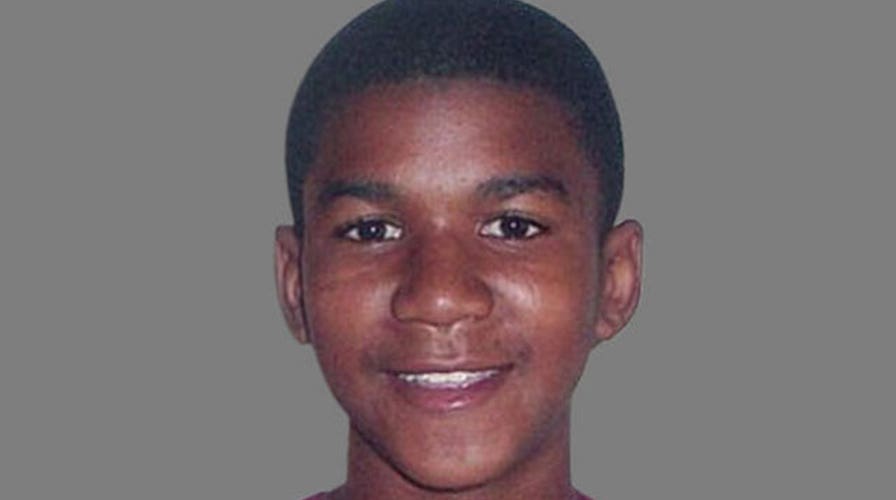Is Trayvon's disciplinary record relevant to the trial?
Doug Burns and Harry Houck discuss the details of the George Zimmerman Trial
SANFORD, Fla. – Potential jurors' views on race were the focus of questioning Monday in second week of their selection for the second-degree murder trial of George Zimmerman in the fatal shooting of black teenager Trayvon Martin.
A defense attorney questioned a potential juror extensively about her views on the case and whether she was bothered by protests led by civil rights leaders after Zimmerman's shooting last year of the unarmed 17-year-old Martin. Zimmerman identifies himself as Hispanic.
A 44-day delay in Zimmerman's arrest led to protests around the nation. Protesters questioned whether the Sanford Police Department was investigating the case seriously because Martin was a black teen from the Miami area.
The third juror questioned Monday morning was a middle-aged white woman who described the protests as unsettling and speculated that there could be further marches in Sanford if Zimmerman isn't convicted of second-degree murder. The jury candidate, who said she has a biracial grandson, also said she was unsure whether Zimmerman racially profiled Martin because it was dark and the Miami teen was wearing a hoodie, possibly making it difficult to see his race.
SPECIAL COVERAGE: ZIMMERMAN TRIAL
Zimmerman, a neighborhood watch volunteer, was walking through the community of townhouses where he lived when he spotted Martin walking back from a convenience store to a home belonging to his father's fiancee. Zimmerman called a nonemergency police number, followed Martin and at some point there was a fight between them that left Martin dead.
Zimmerman, 29, is pleading not guilty, claiming self-defense.
When asked if she thought it was wrong when Zimmerman ignored a police dispatcher's advice not to follow Martin, she answered "yes."
Separately, Circuit Judge Debra Nelson must still decide whether to allow voice identification experts to testify at trial about screams captured on 911 calls. Voice recognition experts were hired by lawyers and news organizations to analyze the calls which were made by neighbors during the confrontation between Martin and Zimmerman. Thus far, the experts have reached mixed conclusions about whether they belong to the teen or the neighborhood watch volunteer. Defense attorneys don't want the experts to testify.
After potential jurors went home on Monday, Nelson listened to testimony from defense voice-recognition expert James Wayman who discounted methods used by two prosecution experts. One expert said in a report that the screams came from Martin and the other expert ruled out Zimmerman during testimony at pretrial hearing. Wayman also doubted the screams came from just one person and said the 911 call was just too small a sample from which to draw conclusions.
"That is not enough data ... to do any reliable estimation of who the speaker is," Wayman said.
Testimony from audio experts is expected to continue through jury selection this week.
Prosecutors and defense attorneys are seeking a pool of 40 potential jurors who have been screened for any influence of pretrial publicity before moving to a second round of questioning. By Monday, they had interviewed 49 potential jurors over the past week. They must narrow down the pool to six jurors and four alternates.
The judge presiding over the trial Monday asked four more potential jurors back for further questioning, raising to 32 the number of candidates asked to return. Of those asked to return, more than two-thirds are white. The pool also is overwhelmingly female and skews middle-aged.
Those who are picked for the jury will have their names kept private for at least some time after the trial, Nelson ruled Monday. The judge granted a defense motion to keep information on the jurors confidential after the trial, but she said she would wait to decide for how long.
Also interviewed Monday were an older white man who said he didn't have an opinion the case and a middle-aged black man who was dismissed after he said he would have trouble passing judgment on someone because of his religion. Attorneys also questioned a Hispanic mechanic in his 30s who said serving on a jury would be a hardship and a middle-aged white man who said he had donated $20 to Zimmerman's online legal defense fund.
It was the first encounter for attorneys with a potential juror who had donated to the fund. "It just seemed like he was underdog," the potential juror said of Zimmerman. "He couldn't go to work. He had to go into hiding. I just felt sorry for him."
The candidate wasn't asked back.


